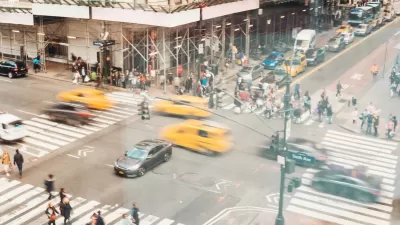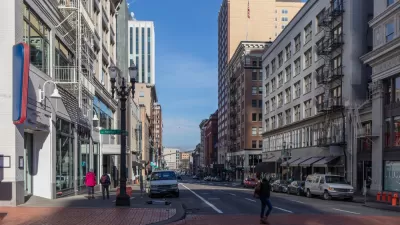Despite all the dire—sometimes hysterical—warnings about the safety risks of bike share, the country's bike share systems boast a flawless fatality record. Compare that record with, for instance, driving or riding non-bike-share bikes.
Barbara Goldberg reports for Reuters that even after 23 million bike share rides since the first program launched in United States back in 2007 in Tulsa, Oklahoma, there has not been a single fatality.
Although there is no "central reporting clearinghouse" for bike share fatality data, Reuter confirmed the statistic with three independent transportation experts.
Goldberg also points out some of the reasons why bike share's safety record is better than that of bikers not using a shared system, and, for that matter, without mandatory helmet requirements for bike share systems.
Following up on the Reuters coverage for Vox, Joseph Stromberg adds the point that the increased number of bikes on the street as a result of bike share contributes to the "safety in numbers" dynamic that has been supported by numerous studies.
FULL STORY: After 23 million rides, no deaths in U.S. bike share programs

Maui's Vacation Rental Debate Turns Ugly
Verbal attacks, misinformation campaigns and fistfights plague a high-stakes debate to convert thousands of vacation rentals into long-term housing.

Planetizen Federal Action Tracker
A weekly monitor of how Trump’s orders and actions are impacting planners and planning in America.

In Urban Planning, AI Prompting Could be the New Design Thinking
Creativity has long been key to great urban design. What if we see AI as our new creative partner?

King County Supportive Housing Program Offers Hope for Unhoused Residents
The county is taking a ‘Housing First’ approach that prioritizes getting people into housing, then offering wraparound supportive services.

Researchers Use AI to Get Clearer Picture of US Housing
Analysts are using artificial intelligence to supercharge their research by allowing them to comb through data faster. Though these AI tools can be error prone, they save time and housing researchers are optimistic about the future.

Making Shared Micromobility More Inclusive
Cities and shared mobility system operators can do more to include people with disabilities in planning and operations, per a new report.
Urban Design for Planners 1: Software Tools
This six-course series explores essential urban design concepts using open source software and equips planners with the tools they need to participate fully in the urban design process.
Planning for Universal Design
Learn the tools for implementing Universal Design in planning regulations.
planning NEXT
Appalachian Highlands Housing Partners
Mpact (founded as Rail~Volution)
City of Camden Redevelopment Agency
City of Astoria
City of Portland
City of Laramie





























